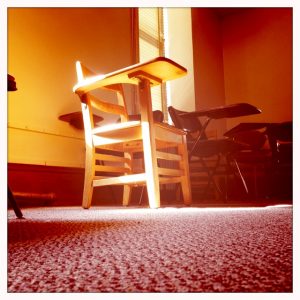I start the new academic term, which is right around the corner, with butterflies in my stomach. And yet, unlike the Sunday evenings before the Monday mornings of yesteryear when I experienced a similar sensation, this one is born of excitement, not anxiety.

Immersing our undergraduates in rabbinic thought and Jewish philosophy, the Jewish literatures of Latin America and the United States, Jewish women’s history and the history of the ghetto, to name just a few of our offerings, should make it abundantly clear that there’s so much more to Jewish education than Hebrew school.
Our public programs, which are open to the community, also make that point, expanding our intellectual as well as our geographical horizons. Over the next few months, East European Jewry looms especially large in our sights. For starters, Professor Marek Kucia, a sociologist from the Jagiellonian University in Krakow, will be on campus in mid-March where, among other things, he’ll be delivering a talk on the Europeanization of Holocaust memory.
A week or so later, the Program’s annual Frieda Kobernick Fleischman Lecture will feature Jonathan Brent, the executive director of the YIVO Institute in New York, who will be speaking about his recent bibliographic adventures in Vilna, where thousands of once well-thumbed Jewish books remain, inert, on the shelves. Co-sponsored by and held at the Polish Embassy, Mr. Brent’s talk promises to affect both our intellect and our emotions.
This is as it ought to be. Judaic Studies, I’ve come to see, and hope you do, too, is not just a discipline or a field of study. It’s also a way of contemplating the world – and of emerging just a bit wiser for it.

